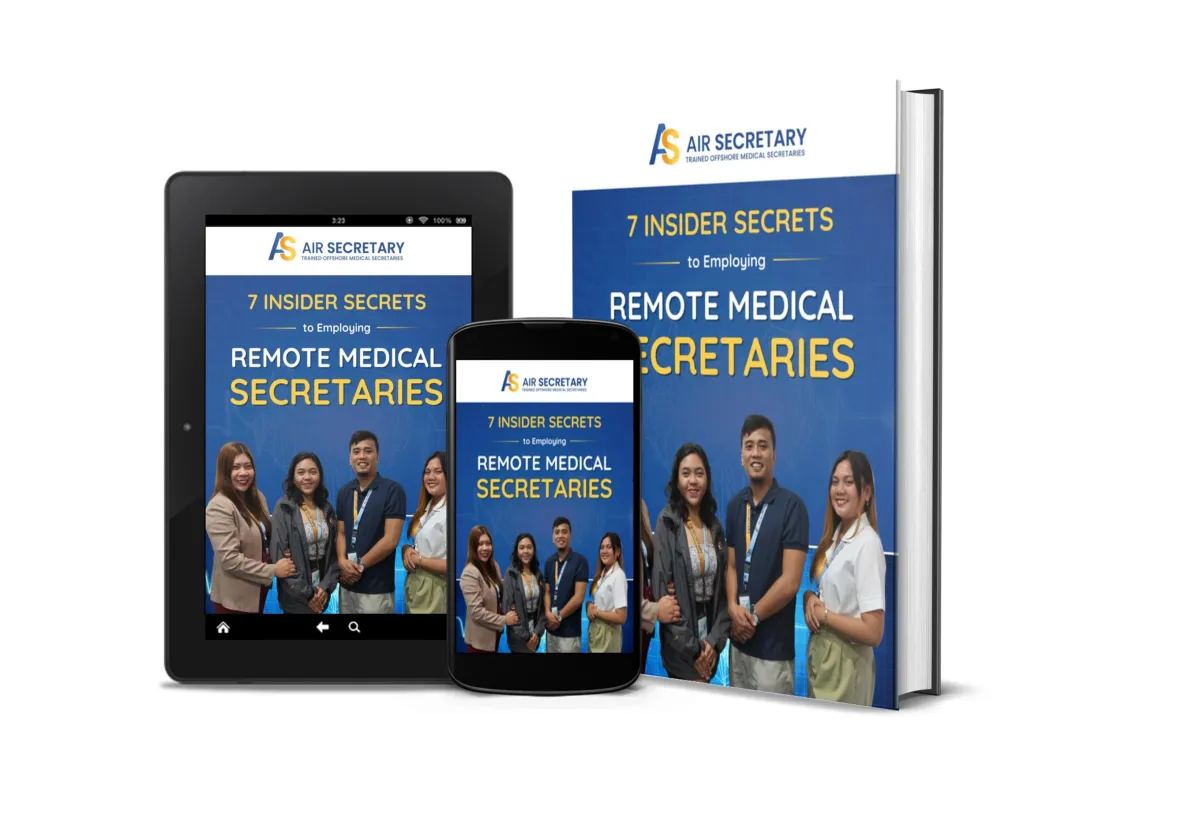Blogs

Your Practice’s Secret Weapon: How to Interview to Find Your Ideal Medical Secretary
A medical secretary is far more than an administrative assistant—they are the backbone of any well-functioning medical practice. As the first point of contact for patients, a medical secretary sets the tone for their entire experience. Whether it’s answering the phone with professionalism and empathy, managing appointment schedules, or ensuring patient records are accurate and up-to-date, this role is critical to the smooth running of your practice.
When administrative duties are managed effectively, your on-site secretarial staff can spend more of their time with patients and less time on admin. The right medical secretary will create a seamless workflow, reduce stress on the team, and contribute to an organised, patient-centred environment.
Hiring the ideal candidate may seem daunting, especially if you’re interviewing individuals who are new to the medical field. However, by focusing on transferable skills, cultural fit, and a willingness to learn, you can find someone who will thrive in the role and help your practice flourish. This guide will help you ask the right questions to identify your practice’s next secret weapon.
1. Focus on Transferable Skills
Communication Skills: Experience in customer service or front-facing roles can translate into managing patient interactions.
Organisation: Roles involving scheduling, logistics, or project coordination often provide the skills needed to handle a busy medical practice.
Attention to Detail: Look for candidates who have worked in environments requiring precision, such as finance or data entry.
Empathy and Interpersonal Skills: Jobs in caregiving or hospitality often develop the ability to connect with others and manage difficult situations.
2. Must-Have Qualities in a Candidate
Eagerness to Learn: Ask about their willingness and ability to adapt to new systems and environments.
Problem-Solving Mindset: Ensure they can think critically and handle unexpected challenges.
Reliability: Look for consistency in their work history or examples of dependability in prior roles.
Cultural Fit: Ensure their personality aligns with the team and the practice’s values.
3. Tailored Interview Questions for First-Time Medical Secretaries
Understanding Transferable Skills:
"Can you describe a time when you had to juggle multiple priorities at work? How did you handle it?"
"What experience do you have communicating with people in stressful or emotional situations?"
"Tell me about a time when you had to learn something new quickly. How did you approach it?"
Attention to Detail:
"What steps do you take to ensure your work is accurate?"
"Can you share an example of when catching a small error made a big difference?"
Adaptability and Problem-Solving:
"How would you respond if a patient called with a complaint about their experience?"
"Imagine the doctor’s schedule changes suddenly. How would you approach reorganising appointments and notifying patients?"
Cultural Fit and Personality:
"What kind of work environment helps you thrive?"
"How do you approach working in a team where communication is critical?"
"Why are you interested in working in a medical office, and how do you see your previous experience helping you succeed?"
4. Assessing Cultural Fit
Team Dynamics: Look for someone who values collaboration and open communication.
Work Ethic: Ask how they handle challenges or periods of high workload.
Personal Values: See if their values align with the mission of your practice, such as patient care and professionalism.
5. Tips for a Successful Interview Process
Role-Playing Scenarios: Test how they would handle specific patient interactions or scheduling challenges.
Practical Tests: Have them organise a sample schedule or explain how they would prioritise tasks.
Involve Your Team: Ask for feedback from staff members who interact closely with medical secretaries.
6. Red Flags to Watch For
Inability to provide specific examples of past accomplishments or problem-solving.
Lack of enthusiasm for learning or adapting to a medical environment.
Signs of poor communication skills or discomfort with patient-facing responsibilities.
Conclusion
While prior experience as a medical secretary is beneficial, finding someone with the right skills, personality, and motivation is more critical. Look for a "trainable" candidate who will grow with the practice and embody its values.
If you would like, we can help you - Contact us to learn how



